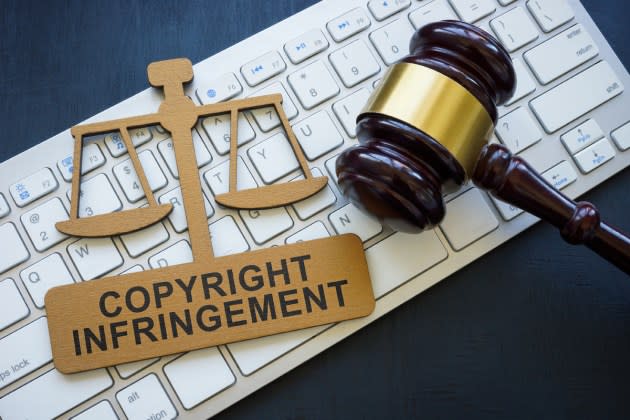The New York Times Sues Open AI, Backer Microsoft For Copyright Infringement; Says Platform Wants To “Free-Ride” Expensive Journalism For “Substitute Products”

In what may be a landmark case, The New York Times has sued Open AI and Microsoft for copyright infringement, saying the publication’s content is being lifted by the platform to feed automated chatbots, constituting “unlawful copying and use of The Times’s uniquely valuable works.”
“Defendants seek to free-ride on The Times’s massive investment in its journalism by using it to build substitutive products without permission or payment,” it said.
More from Deadline
Generative AI Used By Three-Quarters Of Young Brits, Ofcom Says
Michael Cieply: Of A Christmas Movie Past, When 'Polar Express' Met The New York Times
It’s the first time a major media organization has sued an AI platform although there are a handful of pending cases brought by IP owners from Sarah Silverman to John Grisham to Getty Images.
The suit, filed in U.S. District Court in the Southern District of New York today (read it here), says Open AI and backer Microsoft should be responsible for “billions of dollars in statutory and actual damages” and that chatbot and training models that use copyrighted material from The Times should be destroyed.
“The work of the Times “is made possible through the efforts of a large and expensive organization that provides legal, security, and operational support, as well as editors who ensure their journalism meets the highest standards of accuracy and fairness,” the suit said. “Defendants’ unlawful use of The Times’s work to create artificial intelligence products that compete with it threatens The Times’s ability to provide that service.”
AI tools that rely on large-language models (so-called LLMs) “were built by copying and using millions of The Times’s copyrighted news articles, in-depth investigations, opinion pieces, reviews, how-to guides, and more. While Defendants engaged in widescale copying from many sources, they gave Times content particular emphasis when building their LLMs.”
Generative AI, a surging and well-funded field led by Microsoft’s Open AI, trains chatbots on large data sets. The suit says the platform uses “The Times’s content without payment to create products that substitute for The Times and steal audiences away from it.”
The Authors Guild, John Grisham, George R.R. Martin, Michael Connelly, Jodi Picoult and a group of other famous fiction writers filed a class action lawsuit against OpenAI, claiming that their technology is infringing on their works.
Pulitzer Prize-winner Michael Chabon and Tony-winning playwright David Henry Hwang are among another group of writers that filed a class action lawsuit against Meta in federal court for having “copied and ingested” their works to train its LLaMA AI platform.
At issue in that case is training data for AI software programs that are designed to produce convincingly natural text in response user prompts. They are trained, the suit says, “by copying massive amounts of text and extracting expressive information from it. The body of text is referred to as the training dataset,” said that suit. The Plaintiffs have copyrights for their books and written works “and never consented to their use as training materials for LLaMA” — the AI platform of Facebook parent Meta.
In July, Sarah Silverman and two other authors sued OpenAI and Meta for copyright infringement.
More…
Best of Deadline
2023 Premiere Dates For New & Returning Series On Broadcast, Cable & Streaming
2023-24 Awards Season Calendar - Dates For Oscars, Emmys, Grammys, Tonys, Guilds & More
Sign up for Deadline's Newsletter. For the latest news, follow us on Facebook, Twitter, and Instagram.

